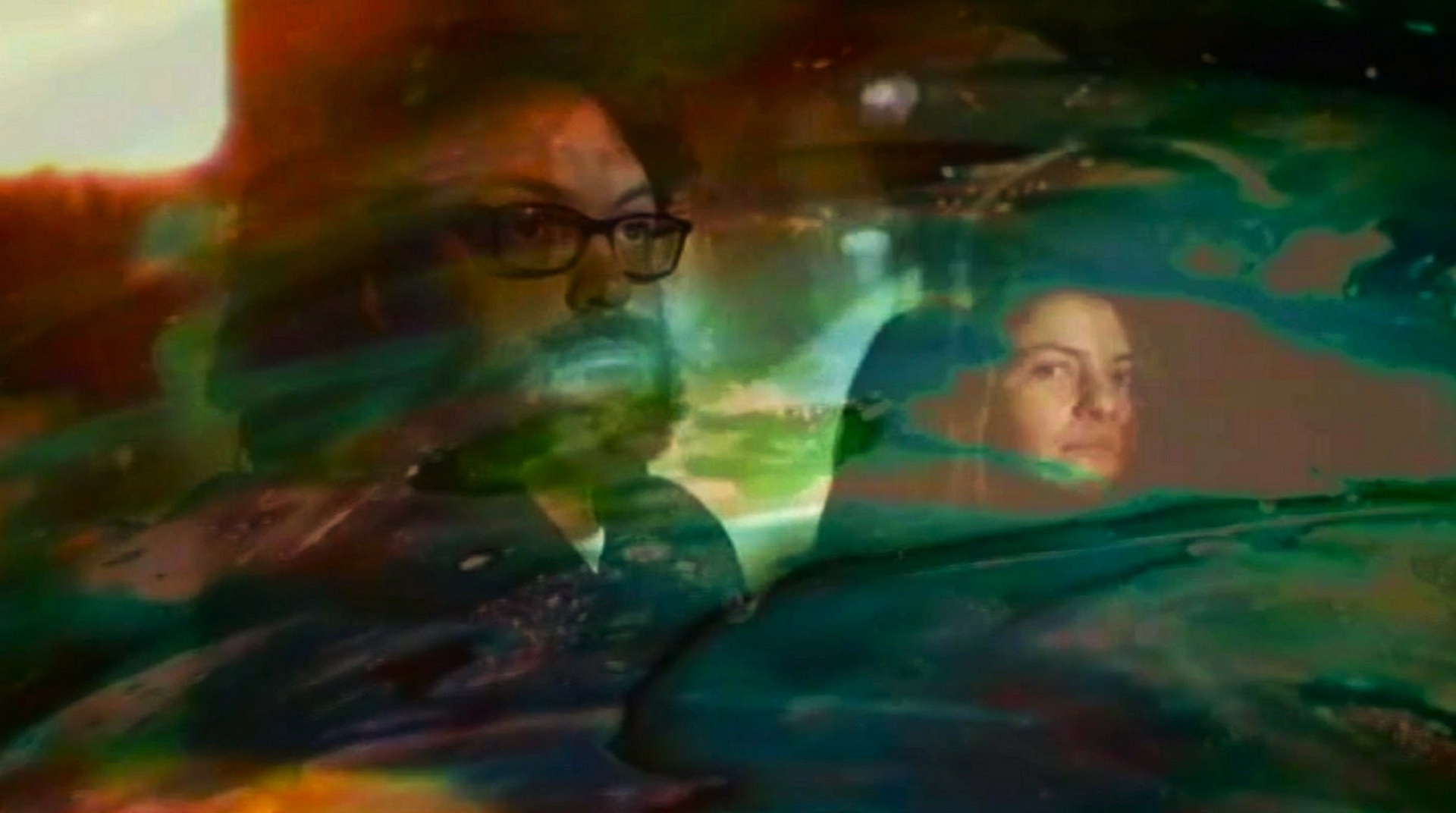Inaugurazione ore 19.00
La video-opera è fruibile tutti i giorni da mercoledì 21 giugno con orario 17:00 - 20:00
Programma a cura di Fulvio Baglivi, Mauro Santini, Roberto Turigliatto

spazio bianco continues its investigation into Italian cinema of research (a continuation of the experience of the Satellite section) by proposing two paths that show how analogue and digital contribute to the creation of new forms of storytelling and aesthetics as well as ethics in the work of Federica Foglia and Erik Negro. The double show will be completed and expanded on RAI 3 Fuori Orario - Cose (mai) viste in the night of Friday, June 23, with films by and interviews with the filmmakers.
“We have experimented and represented ourselves for months, departing from mere walks in search of materials for a dissertation. How can we recreate a memory visually? We have walked and filmed, photographed and painted; we have known each other and told about ourselves. An experience transformed into a story that deals with a shared journey, made of shoots, changes of season, conversations about the moon, and exchanges about techniques. Inspired by The Dark Side of the Moon, we have tried to portray the inner, personal emotions that came to us through the music. For every song a language, for every movement a colour, for every sound an expression. What is left today, half a century later? Possibly something unexplainable. A wonderful creation of friendship and mutual artistic esteem, to the (re)creation of more memories, overlapping like membranes on the screen.” (Bea and Erik)
regia, montaggio e realizzazione: Bea Morino ed Erik Negro
animazioni: Bea Morino, fotografia: Erik Negro
con: Thomas Garcia, Noemi Cosoleto, Alessandro Riccardi
musiche: «The Dark Side of the Moon», Pink Floyd, 1973
grazie al: «Centro Studi di Filosofia della Politica Armando Galliano»
After his studies in Philosophy and Semiotics, Erik Negro (1990, Italy) has worked in documentary and experimental cinema. He is a contributor for FilmParlato.it and Cinelapsus.com as well as Il Manifesto, Cineteca Griffith (Genoa), and Garaje Lumiere (Madrid). He is a curator and nonconventional programmer of independent cinemas and an editor, at times co-writer, for avant-garde films, archival works, videos, and installations. He was a member of the Tff.Doc international jury. In 2019, the Pesaro Film Festival premiered his debut feature Non c’è nessuna Dark Side (atto uno), which went on to screen at the International Film Festival Rotterdam and the Rio Festival ECRÃ. His other works, including those with Barbara Elese, are selected in galleries, exhibitions, and the Rai 3 show Fuori Orario. He is currently pursuing his theoretical and existential research in the relationship between image, space, and time, in the use of several techniques, and the formal deconstruction of editing.
Fulvio Baglivi, Roberto Turigliatto
Between Erik Negro and ‘Fuori Orario cose (mai) viste’ there is a long-standing relationship, even though he was born after the launch of the show and belongs to a generation who hasn’t needed TV to watch films. Erik chose Fuori Orario as a point of reference since he was a teenager to build his own atlas of visions, which he has enhanced attending European film festivals for years. With the show conceived by Enrico Ghezzi, the young filmmaker shares not only a small group of favourite fundamental film directors who have lit up Rai 3’s nights since the beginning – including Godard and Michael Snow, for whom Erik made two tribute/films – but also the idea of endless continuity of cinema and life, appropriating an aesthetic worldview, in a unique, personal way, for which “playing” with images is crucial. Erik Negro’s approach to cinema is direct, unmediated; he prefers an amateur’s or lover’s approach to professionalism; he favours the notion of filmmaker over that of director or creator; he is convinced that ‘film critique’ is not bound to writing only, but includes programming or filming too, in line with the theories and practices that have found a congenial breeding ground of creation and experimentation in a few research or concept film festivals, such as Pesaro or Rotterdam. Even though it is filled with references, forerunners, and affinities, this solitary and often hidden voice hailing from remote provinces of Piedmont is uniquely original, in both existential and aesthetic terms. The cinema of Erik Negro is the outcome of the time of abundance and abandon: abundance of images available and of technical means to create, edit, alter them, and the choice of abandoning oneself, going with the flow, to this sea of light filled with heroes, myths, gods, lost paradises, and impossible enterprises. In the films of this singer of a permanent shipwreck, Brakhage and the boys of Acqui Terme, the Partisans and Pink Floyd, Ayrton Senna and Fenoglio meet and get lost, drifting in the fear and desire of an impossible dark side of the moon.
ALL SCREENINGS ARE FREE

